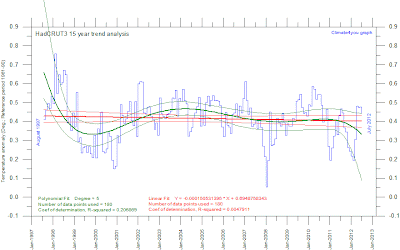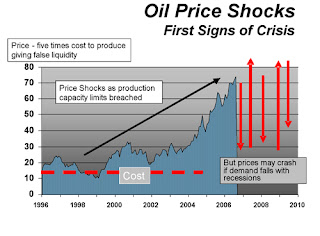Byron has very kindly engaged with my God and Mammon declaration; herewith my response to some of his comments.
#1. Agreed, as long as the first commandment is always also kept in the context of “a second, which is like it”. How is the second “like” the first? I understand Christ’s words here to offer the second command not as a supplement (how can any love supplement the wholehearted, uncompromising and totalising obligation of the first?), but as an explanatory and expansionary gloss on the first. That is, we love God wholeheartedly in and through loving our neighbour as ourselves. This offers a greater depth to the diagnosis and analysis of idolatry, which will therefore likely (or perhaps by definition) be in breach of the second commandment as well as the first. But I doubt we’re on significantly different ground here and I don’t think you’ve denied any of this in how you’ve expressed yourself which is clearly intended to be brief and sharp.
Actually, I suspect we are on significantly different ground here. I view one of the most dire problems that the church faces, and which vitiates all of its attempts to engage critically with the world, as salt and light, as being due to the evacuation of the sense of the first commandment into a comfortable affirmation of the “second, which is like it”. There is a reason why Jesus says that the first commandment comes first. The first commandment contains a distinct meaning, which cannot be disregarded. Yes, there is an intrinsic link between love of God and love of neighbour – and where there is no love of neighbour then that is a clear sign that the love of God is deficient – but I believe that Christians have become very comfortable with the idea that by doing good works for our neighbours we are doing all that we need to do in order to love God. No. That is false, and a heresy. I go into this in some detail in chapters three and four of my book – which is the real intellectual heart of it – but for now let me say that if we get the first commandment right, the second naturally follows; the inverse is not the case, and, indeed, the inverse is eventually self-defeating.
#2. Is there really any necessary tension between obedience to the first commandment and seeking the good of a local political economy? I refuse to accept that unfettered economic growth is actually good for a local political economy when considered with a wide enough lens. Your phrasing seems to imply that Mammon is simply to be equated with “the needs of any local political economy”, apparently denying the possibility of faithful Christian discipleship in this sphere. In contrast, and as stated above, I take it that genuinely loving God will involve a disciplined, creative and humble engagement with the needs my local community, including its political economy.
OK, some clarification, although I’m happy with my wording (for the moment). I believe that we are called to pray and work for the good of the city in which we find ourselves (Jeremiah 29.7). There is an important little word here: ‘may’. There is nothing wrong with material wealth and prosperity – I believe that God calls us to the land of milk and honey. Furthermore, I believe that we are called to work for the particular goods that enable human flourishing (see below). Yet what is most crucial is to recognise that, however wonderful, such prosperity is secondary and can most assuredly be gained when the first commandment is given priority. That is what I see as a hallmark of the Old Testament prophets, and their insistence upon right worship. My point, therefore, is to insist that the good of the local political economy must, like everything else, be placed into a proper context. My point might be paraphrased as ‘nobody who loves local political economy more than Jesus is worthy of being his disciple’.
#3. Are wars “inevitable” when base human appetites are systematically fostered? I would suggest that conflict may thereby become far more likely, though there is nothing truly inevitable in the realm of human actions and the form of the conflict may be either hot or cold, depending on circumstances and opportunities.
Short answer: pretty much, yes. There is a reference here to ‘the American way of life is not negotiable’ which I see as a stark example of idolatry in action.
#4. You introduce here the concept of growth for the first time (I presume you are more concerned with the concept of growth than simply the language of growth). As you know, I share your deep concerns about this ideology and its (spiritual, social, political, ecological) consequences. However, picking out growth alone may appear somewhat selective. The ideology of economic growth as a primary, even highest, political good is one form in which the idolatry of Mammon takes in our society, though it does not exhaust this idolatry. It is quite possible (though perhaps somewhat more difficult) to repudiate growth while maintaining an idolatrous service of Mammon. Embracing some form of zero-growth economics does not automatically solve the love of money (though it may of course help, and may be an important part of repentance of such idolatry in certain circumstances).[Additonal comment snipped]
This I see as the heart of the declaration – the rest is preamble. I am concerned with both the concept and the language of growth – it is through our language that the idolatry spreads and is enacted, so I think being careful about our language is of the essence of the battle that we face. Moreover, I do not see the idolatry of economic growth as the source of all that has gone wrong in human nature – that’s the Fall; nor do I believe that overcoming this idolatry will lead to all things being fixed. My contention is that this is the battle for our time. The is the fight that we have to face, in our generation.
The analogy with the Barmen declaration is instructive. The trigger for that was the rise to power of the Nazi party. A sense of national pride presumably has some place in a healthy personality, under God; the problem comes when it is turned into an idol – as happened. I don’t imagine that Barth and his friends believed that they were going to address all the problems of the world through their action, they were simply pointing out that the underlying tensions and idolatries had broken out into the open in their day, in a particularly toxic form, and that Christians had to make a stand, and decide who and what they were going to choose (Joshua 24.15).
My point is equivalent. The idolatry of Mammon has been prevalent for generations; it is not a new issue. What is new is the wider context, that is, we have gone past the limits to growth. To pursue growth in this context is radically self-destructive; to use their own jargon, continued economic growth has negative marginal utility. To pursue growth will make things much, much worse. The only way through this crisis is by abandoning our desires for more growth.
Furthermore, ‘growth’ is an abstraction, it is a calculation and a mathematical figure entered into government ledgers. What human beings need are homes and jobs, schools and hospitals. The provision of those things may or may not generate ‘growth’ – but they are worthy goals in their own right. I believe that it is the veneration of the abstraction, at the cost of a blindness to reality, which most reveals this contemporary idolatry.
[Additonal comments snipped]
I also think even the idolatry of Mammon is only part of the picture. The roots of our ecological predicament are complex and involve multiple strands. The libido dominandi is at play. Technocratic hubris and the triumph of instrumental reason over sophia. The myth of progress. A falsely absolutised division between humanity and the rest of creation. A failure of political representation. An attenuation of moral imagination. And so just as selecting climate change as the only relevant symptom is too narrow, so selecting the love of money as the only relevant cause is as well. Yet, in either case it is possible to accept that for polemical purposes, some simplification may be tolerated, provided it is acknowledged as such and is then supplemented with a broader and deeper analysis. In effect, the pedagogic and communicative path through which to confront our predicament is a tactical decision, amenable to multiple solutions, which may vary based on contextual factors.
I agree with almost all of this – and my own ‘broader and deeper analysis’ is in my book. I’m not really wanting just to be polemical with this though. I am really coming to the view that this is indeed status confessionis – that is, it is a salvation matter, and ‘it is our blindness to this that constitutes part of our predicament’. Not, necessarily, at all times and in all places, to reject ‘economic growth’ – but here, and now, for us. I believe that God is repeating Deuteronomy 30 to us in our own time.







You must be logged in to post a comment.